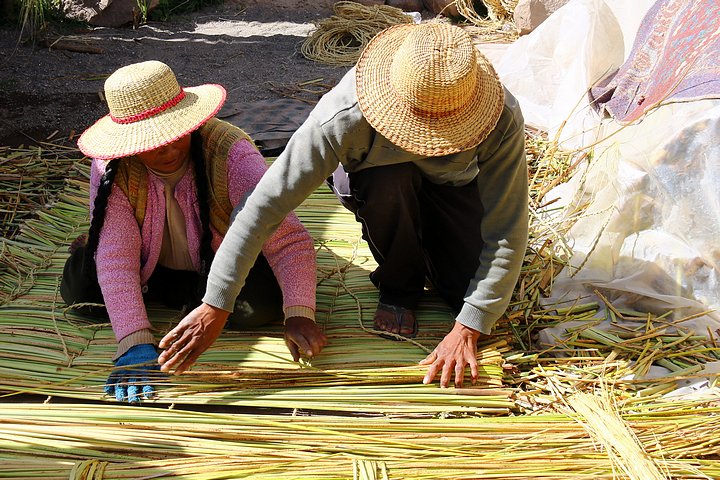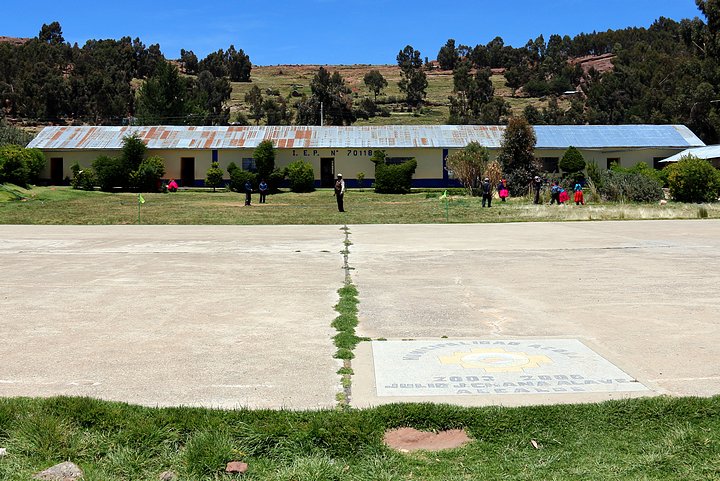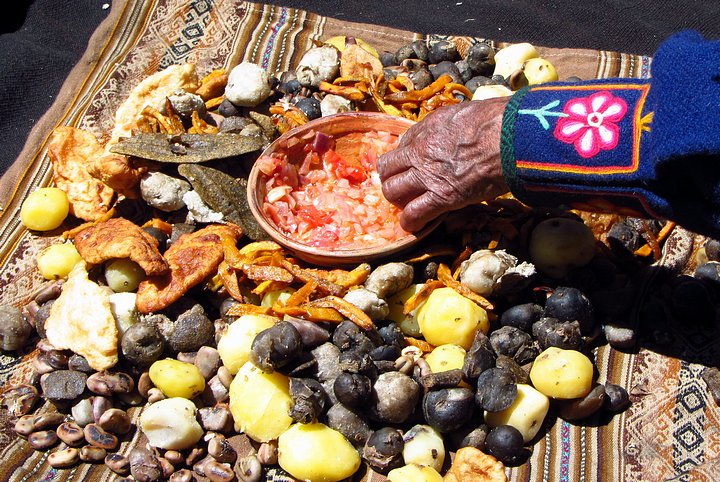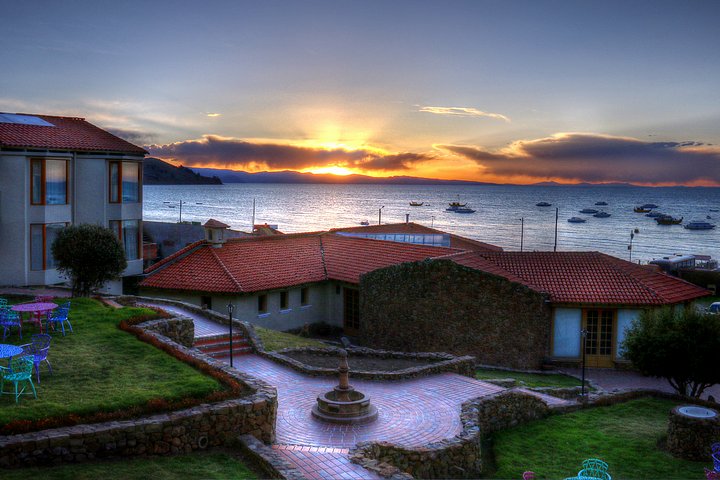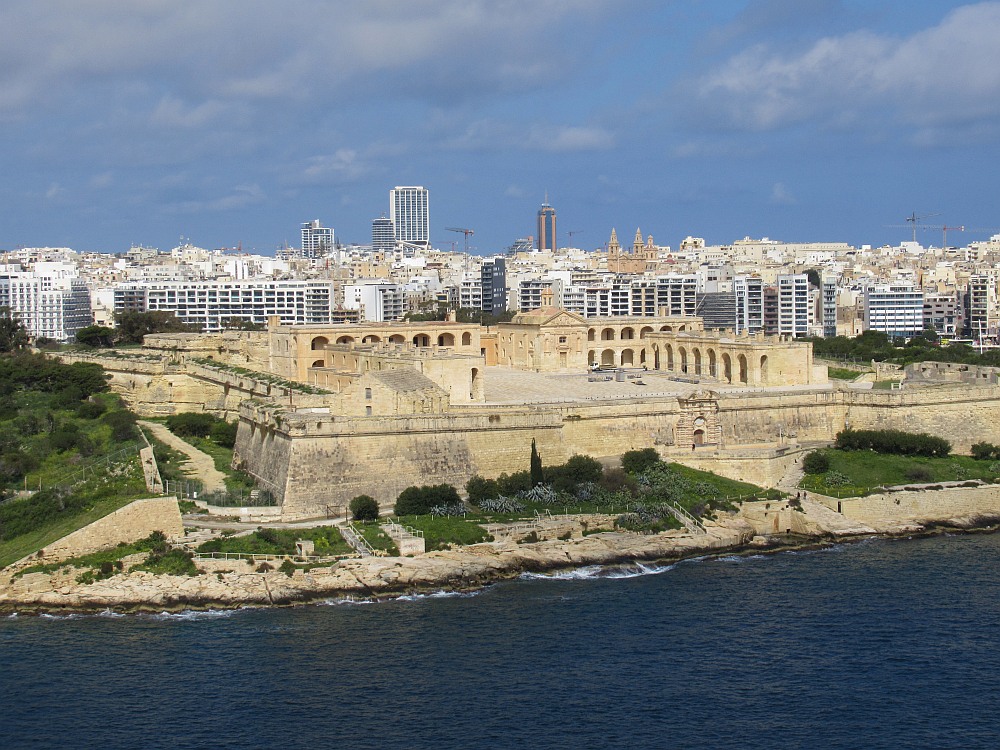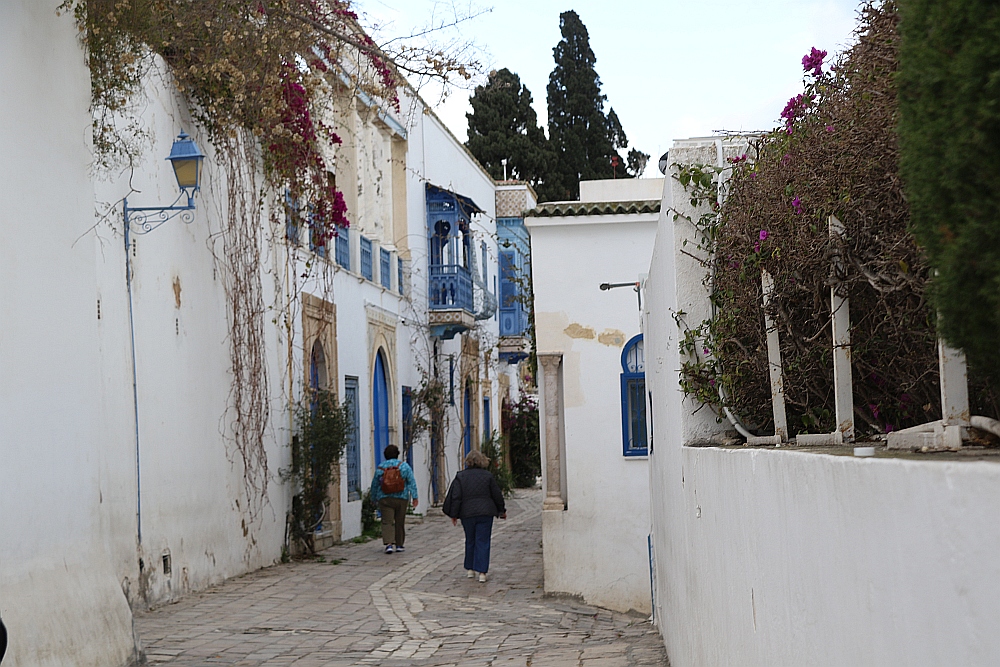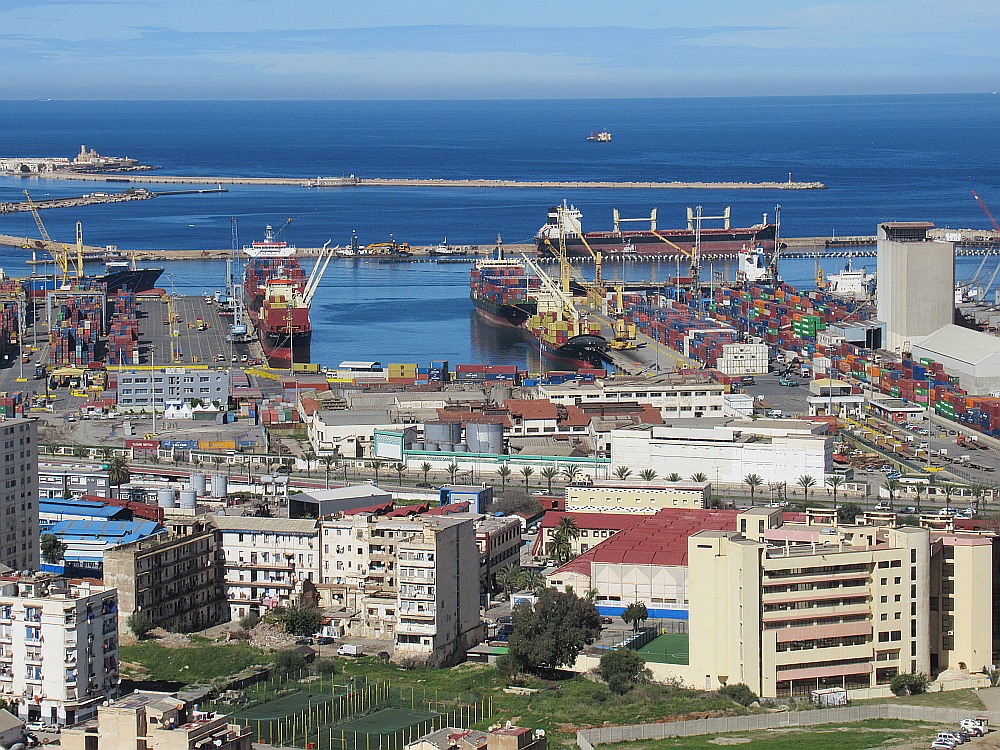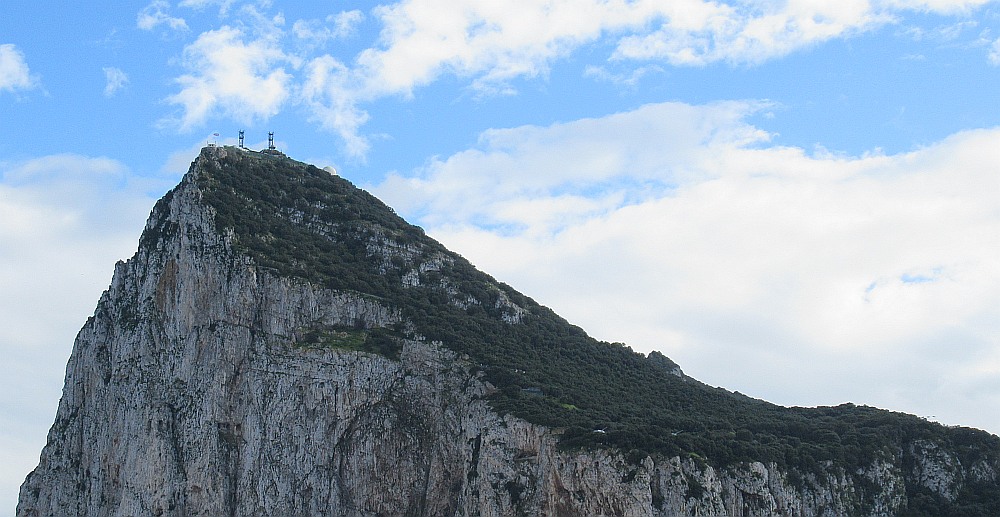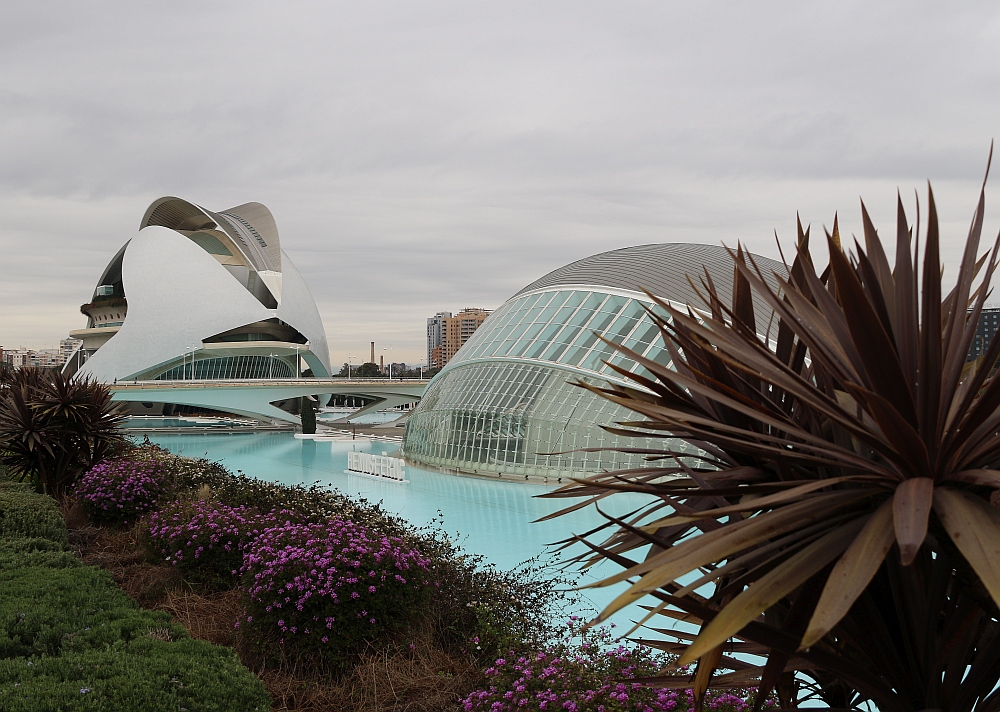Southern Peru-Bolivia Day 9
Southern Peru-Bolivia
Day 09 - Monday, November 3, 2014 - Depart Puno; A Day in the Life of an Altiplano Community – Iska Pataza; Visit Local School; Meet Local People on their Culture and Food; Cross the Border; Copacabana, Bolivia
Today was a travel day; we were up early with the 5:05 AM sunrise. Luggage had to be out at 7:30 and we left at 8:12 - two minutes early. The temperature was 51 degrees but it felt much drier at 35% humidity.
Our first stop was just a few miles from our hotel so we could observe the Aymara people making mats from the totora reeds. Someone calculated that this couple made about $2.50 per day for their hard word on their hands and knees for 8 to 10 hours a day.
The next stop was at Inca Uyo, an Incan fertility site in the small village of Chucuito. The archaeological site contained over fifty phallic symbols used in Incan times for fertility rights, not only for the body, but also for the mind and the soul. Needless to say, many photos were taken.
On our route, we passed many Aymara villages. The land in this valley is mainly agricultural. They grow fava beans, alfalfa, potatoes, some corn, and raise sheep and cattle. We also saw llamas and alpaca.
We made a fifteen-minute stop at the town of Acoro to buy supplies to take to the people in our "Day in the Life” visit. Pepé collected money from all of us and bought macaroni, salt, coca leaves, soda, and plastic bags.
Another spontaneous stop was to talk to an 80 year-old woman named Gregoria and her 70 year-old husband, Miguel. We gave them coca leaves and they talked to us to learn more about their life. It is a tradition to exchange coca leaves among friends.
Broz talked to us the whole trip, as there was much to learn about this culture. Our next stop was an opportunity to visit the elementary school in Isca Pataza. The Director, Mr. Rotillo was so welcoming.
The school houses 27 students with three teachers. Each teacher is responsible for two grades levels, First through Sixth.
The children, especially the girls, wore the traditional costumes and hats each day. The Director told Vic that this was only the third OAT group that had visited the school. The children were very shy and not used to seeing people with skin our color.
We introduced ourselves after the children told us their names and ages. As we paired off with one child, we did a short vocabulary worksheet. We had a little time to talk with our new friend, Claudio, who was 10 years old.
Gennie brought her iPad and we used the Google Earth app to discuss the countries he knew in South America. Claudio knew most of the countries, but he was more intrigued with the iPad.
Gennie showed him the video of photographs of our home and all of the animals that come to our backyard. He loved seeing the bears, but laughed and laughed when he watched the two videos of our Grand-Kitty Deckard talking.
We left the school and rode on the bus a short mile to the path leading to the Community Center. The path to the center was fine red dusty soil, blown from the surrounding red sandstone outcroppings.
Climbing the red rocks up to the center we had a panoramic view of Lake Titicaca. We are following the lake side as we make our way to Bolivia.
When we made it to the top of the hill, the ladies and one older gentleman of Isca Pataza greeted us in their traditional language. They told us their names and ages, the gentleman was 85 and the oldest woman was thought to be 100.
Pepé gave each of us a bag of coca leaves to present to the local ladies. They did not accept them with their hands. The tradition was to take these gifts in a fold in their aprons, in their hats, or in a bag they held up to us. When we had emptied our plastic bags, they wanted them also!
The community leader explained that we would be cooking our own potatoes in a wood fire surrounded by stones. She pulled the ash out from under the rocks and we each threw our potatoes into the rocks. With a long stick, she knocked down the pile of rocks to bury all of the potatoes.
While we waited for our potatoes to cook in the hot rocks, Broz translated our questions. Several women were spinning yarn as we talked and a few were knitting and crocheting.
When the potatoes were ready we had lunch. Our lunch consisted of a light vegetable and quinoa soup, fava beans, fried cheese, fresh farm cheese, and five different kinds of potatoes! We also had an Andean mint tea.
After our lunch, Pepé thanked the community and they sang a song for us. He presented the gifts we brought for them and they thanked us. We shook hands with each of them and thanked them personally.
At 1:30 we were back on the bus and heading east to the border of Bolivia. After another two and a half hours with frequent views of the lake we came to Kasani, the border town into Bolivia.
We got out of our Peruvian bus, said good-bye and thanked Broz for his excellent service to us. He could not cross the border, but our new Bolivian guide, Mario came to greet us and to help us with the immigration paperwork.
There was a stop for restrooms, money exchange, and carrying our hand luggage up the steep hill to the arches of Bolivia. First, we showed our passports and our entrance papers to the Peruvian agent, and then went on to the Bolivian office.
Only one border agent was working and the line was long. Finally, after we had filled out the required papers, we had our passport stamped and we were able to get on the bus.
Our driver, Juan Carlos, helped us with our hand luggage as the OAT agent; Carlos had already carted our luggage up the hill, across the border, and on to the Bolivian bus.
It was a ten-minute drive to our hotel in Copacabana to check in. Mario gave us a little information about the city and gave us some advice about changing money to Bolivian currency, the Boliviano.
Because of the border crossing, we also had to change our clocks forward one hour. Our hotel room was right above the water and our view of the 6:30 sunset was magnificent.
Lake Titicaca is one of the largest fresh water (some say it is brackish) lakes in the world. Its volume of water exceeds all of our Great Lakes combined. Because there is no longer an access to the ocean for Bolivia, their navy patrols this huge lake.
Our room was very comfortable and the view was prefect. We unpacked our bags, did a little hand laundry, and went to work on the photos and the journal.
Copacabana – 3,840 meters – 12,602 feet
Accommodations: Hotel Rosario del Lago --- Meals: B, L, & D
To receive $50 per person off your first reservation with OAT, mention the following information when reserving your Overseas Adventure Travel Trip: Mr. Victor Garcia Customer #673062
Southern Peru & Bolivia: Inca Landscapes & Lake Titicaca
Comments
We saw a blessing of cars and buses in Copacabana. We stayed on Taquile Island in Lake Titicaca for a couple nights and practiced hiking at high altitude before we hiked the Inca trail to Machu Pichu in 2003. So glad we did it then as it was difficult then and probably not possible now. I am enjoying your journal for this trip!
Hey Aunt Gen - tell Uncle Vic his pictures are all great. He has a real fine eye. Love following along with you on your trips.
What a day!! Bruno has a wonderful smile, and those beautiful teeth. Am so, enjoying the trip. Not a dull moment.
This sounded like a fun, but rugged day. Potatoes are a big vegetable in many areas. didn't know your kitty could talk!!! LOL Sounded like a rugged trip to get into Bolivia. I was glad to get to the shower and to bed. LOL
Post a Comment!I'm happy that you got to visit an elementary school!
Featured Journal
Day 18: Mediterranean Navigation
Day 18 - Wednesday, March 19, 2025 – Disembark Ship & Return to USA
It was a dark and rainy morning when we put our luggage outside of our cabin door at 4:15. We met three of our fellow passengers also on the same flight...

